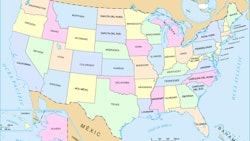
Editor's Note: Oregon, as we've said before, is doing a lot of things right. For example, Oregon's policy set forth in Measure 91 that allows local bans on marijuana sales "only if citizens place a measure on the ballot and win over a majority of the voters," as this Oregon Live article (below) explains. More states should implement this policy, and I hope Oregon legislators don't give on this point, and let cities and municipalities randomly decide to set bans. (For those businesses and patients in cities where marijuana sales are banned by moratorium, however, there may be a recourse.)
Regarding the request by cities to be able to levy their own taxes on retail marijuana sales, is this just a matter of greed–more hands in the coffer? After all, the state taxes already benefit the entire state, and another thing Oregon has done right is to try to keep taxes in line to ensure lower-than-black-market pricing.
Oregon's cities are asking state legislators for big changes in the marijuana legalization law approved by voters in November.
A new bill introduced at the request of the League of Oregon Cities would allow cities and counties to levy their own taxes on retail marijuana sales, something now prohibited under Measure 91.
The measure, Senate Bill 542, would also allow city and county governing bodies to ban retail sales within their borders altogether. In contrast, Measure 91 allows a ban on sales only if citizens place a measure on the ballot and win over a majority of the voters.



























